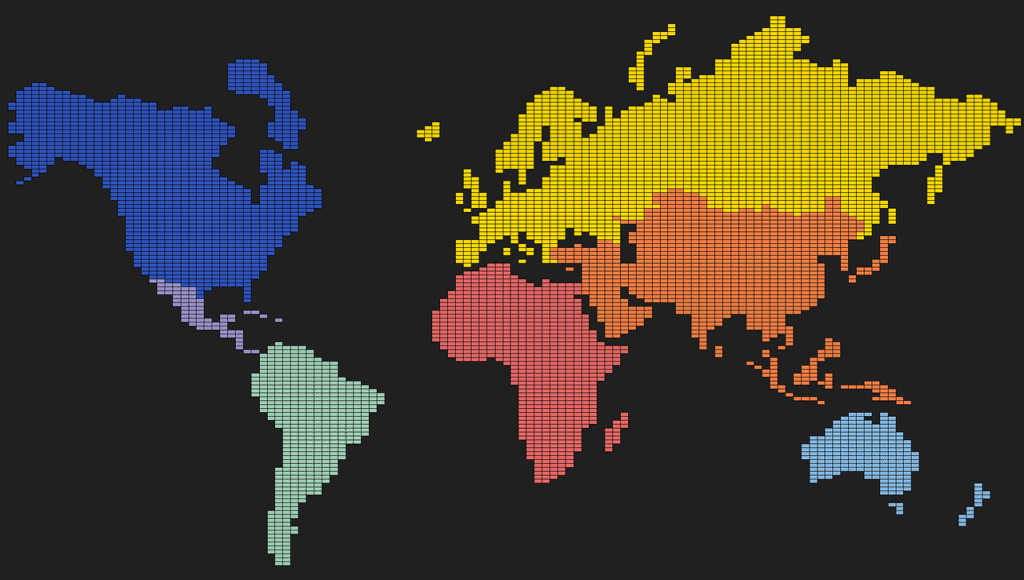In today’s digital-first economy, a professional website is not just a tool — it’s the foundation of your brand. Whether you operate a small family business in rural Spain or manage a growing logistics firm in Germany, a strong online presence is essential to staying competitive and connecting with customers.
Across the European Union, consumer behavior has shifted permanently. Over 85% of people now begin their search for products and services online. Without a website, your business may be invisible to a majority of potential customers. Let’s explore why having a website is crucial — and how EU-based companies can make the most of it.

1. First Impressions Happen Online
A potential customer’s first interaction with your business is likely to be through your website — or lack of one. A clean, modern, and user-friendly website immediately builds trust and signals professionalism. In contrast, not having a website can make a company appear outdated or unreliable, especially when competitors are easily accessible online.
2. Your Website Works While You Sleep
Your storefront might close at 6 PM, but your website is open 24/7. It serves as a round-the-clock representative of your brand, providing information, capturing leads, or even closing sales — without requiring constant attention.
This is particularly valuable in the diverse and multilingual EU market, where time zones and languages vary. A well-structured website allows you to connect with customers in multiple regions at their convenience.

3. Control the Story of Your Business
Social media can be a powerful tool, but it’s limited by algorithms and offers less control over your messaging. A website is your digital home base — a space where you control the content, tone, and branding.
You can showcase testimonials, publish blog posts, present your team, and tailor your offering to your ideal customer. Instead of being just another listing on a marketplace, your website can reflect what makes your business truly unique.
4. Boost Visibility with Search Engine Optimization (SEO)
Search engines like Google are often the first step in the customer journey. A well-optimized website increases your chances of appearing when users search for relevant services or products. This can result in a consistent stream of organic (and free) traffic from people who are already interested in what you offer.
For companies in the EU, this visibility can translate into cross-border opportunities, helping you reach not just your local market but the entire union.

5. Build Credibility with Modern Design
Consumers are quick to judge. A slow-loading, outdated, or poorly designed website can drive visitors away in seconds. On the other hand, a sleek, intuitive site builds confidence and encourages users to take action — whether that’s calling, booking, or buying.
Today’s consumers expect responsive design (mobile-friendly), clear navigation, and fast performance. Investing in a quality website isn’t just about aesthetics — it’s about user experience and trust.
6. It’s More Affordable Than Ever
The cost of creating and maintaining a website has decreased significantly over the last decade, especially for small and mid-sized businesses. With the right partner, a high-quality website doesn’t need to break your budget.
Rakuzan.eu offers tailored web design services specifically for businesses operating within the European Union. From multilingual setups to GDPR-compliant integrations, their solutions are designed to help EU companies launch fast and grow with confidence.

7. Adapt to Changing Consumer Expectations
The pandemic dramatically accelerated digital adoption. Online interactions — from video calls to e-commerce — have become the norm. Customers now expect businesses to offer online touchpoints, even in traditionally offline sectors like construction, wellness, or education.
Having a website is no longer just about marketing. It’s a key part of customer service, sales, recruitment, and brand identity. A single digital platform can streamline your operations and help you adapt to new ways of doing business.
8. Reach Beyond Borders
One of the EU’s greatest strengths is its single market. A company based in Poland can easily sell to customers in Italy or the Netherlands. But without a digital presence, this cross-border opportunity remains untapped.
A multilingual website — with clear content, pricing, and contact options — can help you attract international clients, partners, and employees. A trusted partner like Rakuzan Technology can help make this transition seamless and compliant with regional standards.
9. Future-Proof Your Business
Digital transformation is ongoing. New technologies — from AI-powered chatbots to e-commerce integrations — continue to reshape how businesses operate. A website gives you a central hub to integrate and experiment with these innovations as they become relevant to your industry.
Without this digital foundation, you risk falling behind competitors who are already investing in modern tools and channels.
Final Thoughts
A website isn’t just a digital brochure — it’s the backbone of modern business. It builds trust, improves visibility, and opens up new markets across the European Union. Whether you’re a local startup or an established enterprise, having a strong online presence is essential for growth, reputation, and resilience.
If your company is ready to make the leap into digital — or upgrade its outdated site — visit Rakuzan.eu to learn how you can get started with a team that understands the unique needs of EU-based businesses.
Disclaimer: This article is for informational purposes only and does not constitute financial, tax, or investment advice. Readers should consult with a licensed professional before making any financial or business decisions.





